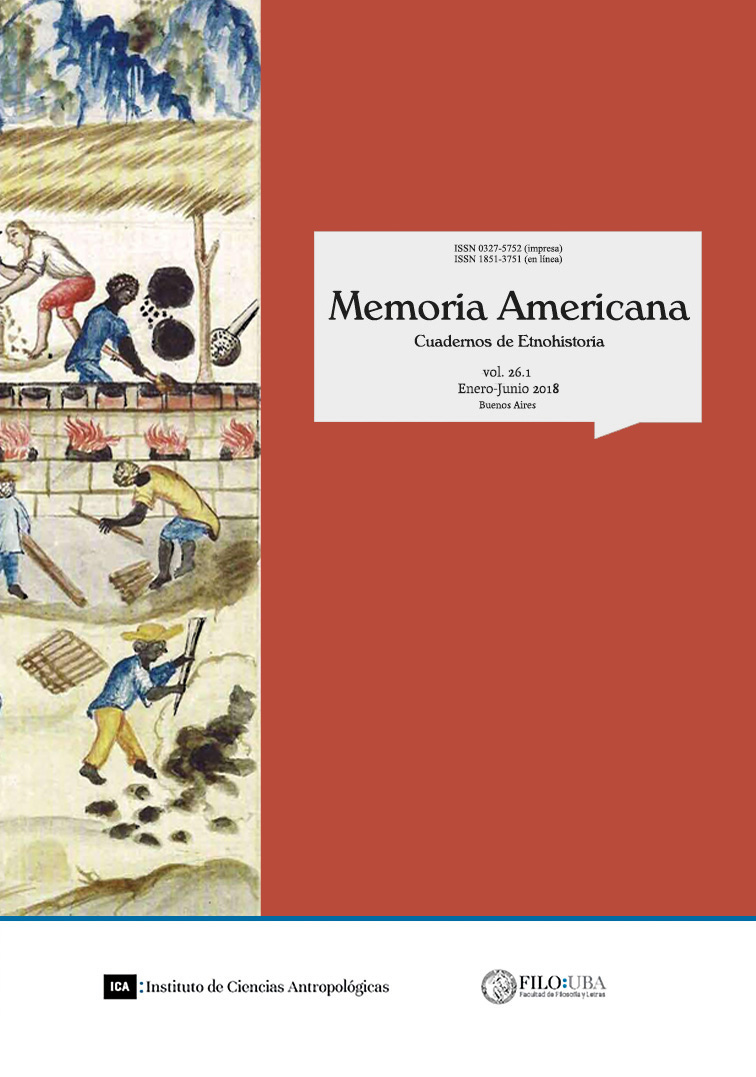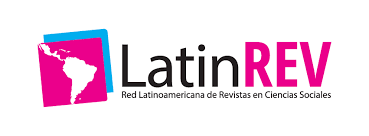Letters from the indigenous peoples to Brazil: the construction of a digital archive 2000-2015
Abstract
This article presents the theoretical and methodological paths chosen for the creation of a digital archive containing letters produced by indigenous people in the last fifteen years and addressed to Brazil. Even today those letters circulate in social networks and in domestic and international websites. Besides discussing the selection of the correspondence, the construction of the addressee -Brazil- will also be analyzed. In order to do so, I will consider the ways those letters can be read: as political manifestos and/ or biographical writings, matters that allow an understanding of the collective uses of this kind of text among the indigenous. The assembly of this archive is intended to produce an esthetic-political panel of the (auto) biographical space that has been composed by the indigenous peoples. Finally, I will explain how this endeavor has been conducted keeping in mind the characterization of the authorial emergency of the historical indigenous subject in the political/literary education of Brazil.Downloads
References
Arfuch, L. (2010). O espaço biográfico: dilemas da subjetividade contemporânea. Trad. Paloma Vidal. Rio de Janeiro, EdUERJ.
Comissão Indígena (2002). Carta II Fórum Social Mundial. Disponível em internet: http://memoriafsm.org/. Acesso em 21 de outubro de 2016.
Costa, S. L. (2013). O que (ainda) podem as cartas? Interdisciplinar VIII (19): 87-98.
Cunha, M. C. da (2012). Índios no Brasil: história, direitos e cidadania. São Paulo, Claro Enigma.
Derrida, J. (2001). Mal de arquivo: uma impressão freudiana. Trad. Claudia de Morais Rego. Rio de Janeiro, Relume Dumará.
Foucault, M. (2004). Ética, sexualidade e política. São Paulo, Forense Universitária. (Coleção Ditos e Escritos V).
Grassi, M. (1998). Lirel’épistolaire. Paris, Dunod.
Kaiowá, G. (2010). Carta Kaiowá Guarani ao Presidente Lula. Disponível em internet: https://www.ecodebate.com.br/2010/08/27/carta-kaiowa-guarani-ao-presidente-lula/. Acesso em 22 de agosto de 2016.
Kaiowá, G. (2012). Carta Guarani Kaiowá de PyelitoKue/Mbarakay. Conselho Indigenista Missionário (website). Brasília: CNBB, 8 out. Disponível em Internet: http://goo.gl/GWZy2l. Acesso em 20 de outubro de 2012.
Krupat, A. (1989). For Those Who Come After: A Study of Native American Autobiography, University of California Press.
Heymann, L. Q. (2012). O lugar do arquivo: a construção do legado de Darcy Ribeiro. Rio de Janeiro, Contra Capa/ FAPERJ.
Librandi, M. (2014). A Carta Guarani Kaiowá e o direito a uma literatura com terra e das gentes. Estudos de literatura brasileira contemporânea 44: 165-191.
Stoler, A. L. (2002). Colonial arquives and thearts of governance, Archival Science 2, Dordrecht: 87-109.
Xavante, P. & P. Mehinaku (2000). Carta comemoração 500 anos. Disponível em Internet: http://brazil.indymedia.org/content/2004/01/272987.shtml. Acesso em 16 de agosto de 2016.
Yanomani, P. (2003). Carta enviada ao Presidente Luiz Inácio Lula da Silva. Disponível em Internet: http://www.proyanomami.org.br/v0904/index.asp?pag=noticia&id=1442. Acesso em 22 de agosto de 2016.
Los derechos de autor son cedidos a Memoria Americana. Cuadernos de Etnohistoria, no obstante los autores podrán recuperarlos y reproducir su trabajo en otros medios o formatos previo envío de solicitud al Comité Editorial. En tales casos, deberá citarse a Memoria Americana. Cuadernos de Etnohistoria como primera publicación del trabajo y el mismo queda bajo una licencia Creative Commons CC BY NC SA 3.0 Attribution- Non Commercial -ShareAlike 3.0, la cual provee libre acceso inmediato a sus contenidos pues se rige por el principio según el cual hacer disponible -en forma gratuita- la investigación al público fomenta un mayor intercambio de conocimiento a nivel global.
Los autores deberán remitir el siguiente formulario de cesión de derechos y compromiso de originalidad:
Cesión de derechos y compromiso de originalidad
Al Comité Editorial de Memoria Americana, Cuadernos de Etnohistoria
Por la presente declaro ser el autor del trabajo titulado (nombre del artículo), el mismo es original y propio y no ha sido publicado en ningún formato o soporte con anterioridad.
En caso de ser aceptado para su publicación en Memoria Americana. Cuadernos de Etnohistoria (número/año) cedo los derechos editoriales que me corresponden por el aludido artículo para su publicación en todos los formatos que posea la mencionada revista.
Si quisiera publicar este artículo a través de otro editor o en otro lugar me comprometo a solicitar el correspondiente permiso por escrito al Comité Editorial de Memoria Americana. Cuadernos de Etnohistoria. De ser afirmativa la respuesta del Comité Editorial me comprometo a lo siguiente:
- especificar lugar, editorial y fecha de la primera publicación del artículo en la nueva publicación
- realizar esta republicación sólo luego de transcurridos un año calendario desde la fecha de la presente nota de cesión de derechos
FIRMA
Aclaración











